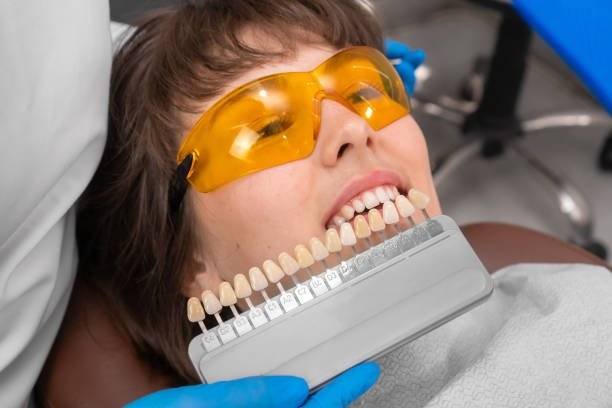Introduction
Welcome to our comprehensive guide on how to care for your dental abutment to ensure enduring and optimal results. In this article, we delve into the intricacies of maintaining dental abutments, offering insights that go beyond the ordinary. Our commitment is to empower you with the knowledge needed for impeccable oral health and a lasting, confident smile.
Understanding Dental Abutments
As the link between dental implants and artificial teeth, dental abutments are essential to dental prostheses. Understanding the composition and purpose of your dental abutment is crucial to ensuring its durability. In addition to supporting the stability of your dental prosthesis, a well-maintained abutment also improves the general health of your gums and neighbouring teeth.
The Crucial Role of Oral Hygiene
Establishing a Robust Oral Care Routine
For the health of your dental abutment, you must follow a strict regimen of oral cleanliness. Plaque and bacterial buildup can be avoided by using antimicrobial mouthwash in addition to routine brushing and flossing. You strengthen the basis of your oral health and greatly extend the life of your dental abutment by carefully following these procedures.
Professional Dental Cleanings
In addition to your daily oral care routine, scheduling regular visits to your dentist for professional cleanings is imperative. Dental professionals possess the expertise to access hard-to-reach areas, ensuring a thorough removal of plaque and tartar. These routine cleanings not only enhance the aesthetics of your smile but also safeguard the integrity of your dental abutment.
Dietary Considerations for Dental Abutment Care
Maintaining good oral hygiene and making appropriate dietary choices can contribute to the overall health of your teeth and dental abutments. Here are some dietary considerations for dental abutment care:
- Limit Sugary Foods and Beverages:
- Sugary foods and drinks can contribute to the growth of bacteria that cause tooth decay. Limit your consumption of candies, sodas, and sugary snacks to reduce the risk of cavities around the dental abutment.
- Choose Tooth-Friendly Snacks:
- Opt for healthy snacks like fruits, vegetables, and nuts. These foods are not only nutritious but also less likely to contribute to tooth decay. Crunchy fruits and vegetables can also help clean teeth by stimulating saliva production.
- Stay Hydrated with Water:
- Water is essential for maintaining oral health. It helps rinse away food particles and bacteria, preventing plaque buildup around dental abutments. Choose water over sugary or acidic beverages.
- Calcium-Rich Foods:
- Include calcium-rich foods in your diet, such as dairy products, leafy greens, and almonds. Calcium is essential for strong teeth and can contribute to the overall health of your dental abutments.
- Phosphorus-Rich Foods:
- Phosphorus, found in foods like meat, fish, eggs, and dairy, is also important for dental health. It works in conjunction with calcium to strengthen tooth enamel.
- Vitamin D Sources:
- Vitamin D is crucial for the absorption of calcium, which is essential for maintaining healthy teeth and bones. Include sources of vitamin D in your diet, such as fatty fish, egg yolks, and fortified dairy products.
- Avoid Sticky and Hard Foods:
- Steer clear of sticky candies and hard foods that can potentially damage dental restorations, including dental abutments. Chewing on hard substances can put stress on the dental work and compromise its integrity.
- Moderate Acidic Foods:
- Acidic foods and beverages can erode tooth enamel over time. While some acidity in the diet is acceptable, moderation is key. If you consume acidic foods or drinks, consider rinsing your mouth with water afterward to help neutralize acidity.
- Regular Dental Check-ups:
- While not directly related to diet, regular dental check-ups are crucial for monitoring the health of dental abutments. Your dentist can identify potential issues early on and provide guidance on proper care.
Remember that maintaining good oral hygiene practices, including regular brushing, flossing, and professional dental cleanings, is essential for the health of dental abutments and overall oral health. If you have specific dietary concerns related to your dental abutments, it’s advisable to consult with your dentist for personalized advice.
Mindful Eating for Lasting Results
Dietary choices play a pivotal role in the maintenance of dental abutments. Avoiding excessively hard or sticky foods can prevent undue stress on your dental prosthesis, reducing the risk of damage. Incorporating calcium-rich foods and vitamin D supplements can further promote the health of your gums and supporting structures.
Vigilance against Parafunctional Habits
Parafunctional habits, such as teeth grinding (bruxism) and clenching, can pose a significant threat to the longevity of your dental abutment. If you suspect or have been diagnosed with these habits, seeking the guidance of your dentist is crucial. Customized night guards or other protective measures can be recommended to mitigate the impact of parafunctional habits on your oral health.
Regular Dental Check-ups and Assessments
Proactive Measures for Long-Term Success
Frequent dental check-ups are instrumental in identifying and addressing potential issues before they escalate. Your dentist can assess the stability of your dental abutment, evaluate the condition of surrounding tissues, and recommend personalized strategies for optimal care. Proactive measures, when coupled with professional guidance, form the bedrock of sustained dental health.
Conclusion
In conclusion, caring for your dental abutment involves a holistic approach that combines diligent oral hygiene, mindful dietary choices, and proactive professional care. By integrating these practices into your daily life, you not only ensure the longevity of your dental abutment but also elevate your overall oral health.















